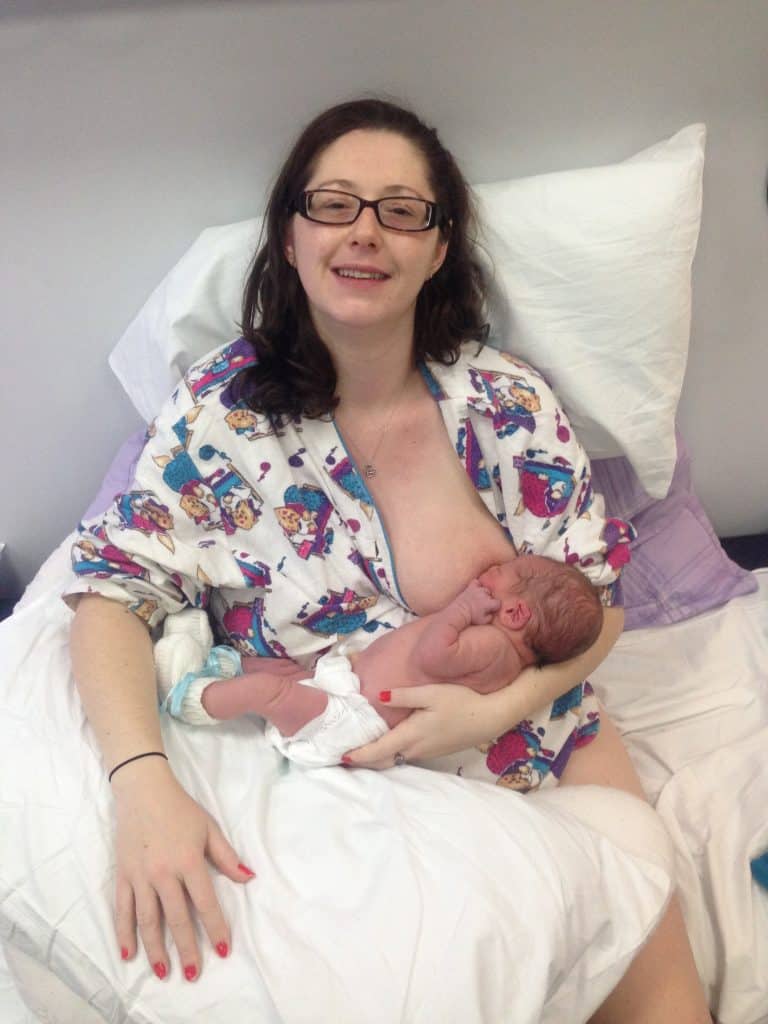When we think of trauma and Post Traumatice Stress Disorder we might imagine a survivor of a car accident, or a war veteran, we probably imagine a ‘traumatic’ event or experience. And this is partly accurate, because major traumatic events can lead to trauma and PTSD but it is not how trauma is defined.
Birth Doula and Sheryl Wynne explains how women can experience Birth Trauma, also known as Peri-Natal Trauma, she writes:
What is Perinatal trauma?
A normal everyday event can lead to trauma if the person experiencing it feels out of control, fears for their life or the life of a loved one, feels vulnerable, isolated and helpless.
That normal every day event can be during pregnancy, during labour and birth, and during parenting. And this is what we mean by perinatal trauma.

Not many people have heard of Birth Trauma, at least not before they have experienced it for themselves, but there is some awareness, at least amongst healthcare professionals and specialist birth workers- but also much more work to do. However, perinatal trauma doesn’t seem to get any airtime at all, or it is certainly not called perinatal trauma if it does.
The thing is, when you are carrying or birthing a baby (or your partner is), when you a caring for a newborn, you are already vulnerable, often isolated, because no one else is having this exact same experience as you, and in many ways helpless and out of control- you cannot dictate exactly what will happen. So then, all you need is to fear for your life, your partner’s life or your baby’s life and you have the cocktail for trauma readily prepared.
Examples of potential events include;
Bleeding
Pain
Illness
Emergency situations (or perceiving an event as an emergency)
Surgery
Losing consciousness
Baby needing resuscitation
Painful feeding
Sleep deprivation
Intrusive thoughts
Problems with baby’s weight gain
Neonatal hospital stays
Neonatal illness
Excessive crying
It has only been a recent discovery for me, that what I thought was my ‘Birth trauma’ was actually better defined as perinatal trauma. Yes, I had a traumatic birth experience, as in I experienced it as a traumatic event despite on paper everything being ok. But I also had a traumatic postnatal experience- partly because of the birth trauma but also separate to it.
My expectations of caring for a newborn were nothing like reality- I was very much unprepared. Breastfeeding was a whole new world that I was equally unprepared for. Sleep deprivation and intrusive thoughts followed, carried over from my fears in pregnancy and during labour that my baby would die. My feelings of failure from my birth experience then made it impossible for me to not breastfeed, and impossible for me to hear my baby cry.
I speak to many people who have experienced a traumatic birth, who live with the impact of that for years to come. Some of them have enjoyable postnatal experiences despite their trauma. Some people have horrifically traumatic postnatal experiences, after a wonderfully empowering and positive birth experience. For some, the birth and postnatal experiences are wonderful but they carry with them the trauma of a difficult pregnancy, that made them very ill or afraid, and they don’t know how they will do that again, despite desperately wanting to.
Some, like me, have experienced trauma at every stage.
- Miscarriage or trouble conceiving leading to fear of losing their baby from the very beginning.
- A physically and/or mentally traumatic entrance into parenthood, stealing their joy and leaving them grieving.
- Reality and expectations colliding in a postnatal period filled with doubt and fear and grief and guilt.
Some people form an unbreakable, loving bond with their baby during their difficult experiences, others, unable to feel what they thought they would feel overcompensate and burn out, or leave the caregiving to someone else distancing themselves and thinking things they think they shouldn’t. Like, I hate baby, I wish they were never born, I want my old life back, I wish I was dead.
All of this is happening over the top of (or perhaps underneath) the normal transformative experience of becoming a parent. The life changing physical and mental changes. Under the weight of the enormous responsibility of bringing life into the world.
I don’t have a conclusion. I don’t have the answer to this. I just know it exists. I know we need to be kind to each other. I know we need to consider that we won’t ever know the full story behind a new parent’s eyes. I know that support needs to be better. I know that we need to talk more honestly and openly, and nonjudgmentally. I know that I can’t sit by and not do anything. So I’m doing this.
I am raising awareness.
I am listening to others.
I am supporting where I can.
I am putting myself back together.
I am trying to change things for the better.
Wakefield Perinatal Trauma Support is a small local, primarily online, support group set up by me. I want to establish a peer listening service to allow us to offer telephone support to those suffering with perinatal trauma, because I know that validation is an important part of the healing process.
If we don’t know something we don’t have any power over it. That’s why knowledge is power.Knowledge is power. Be empowered.

2 Comments. Leave new
Thank you for writing this ❤️
ThNkyou for sharing!